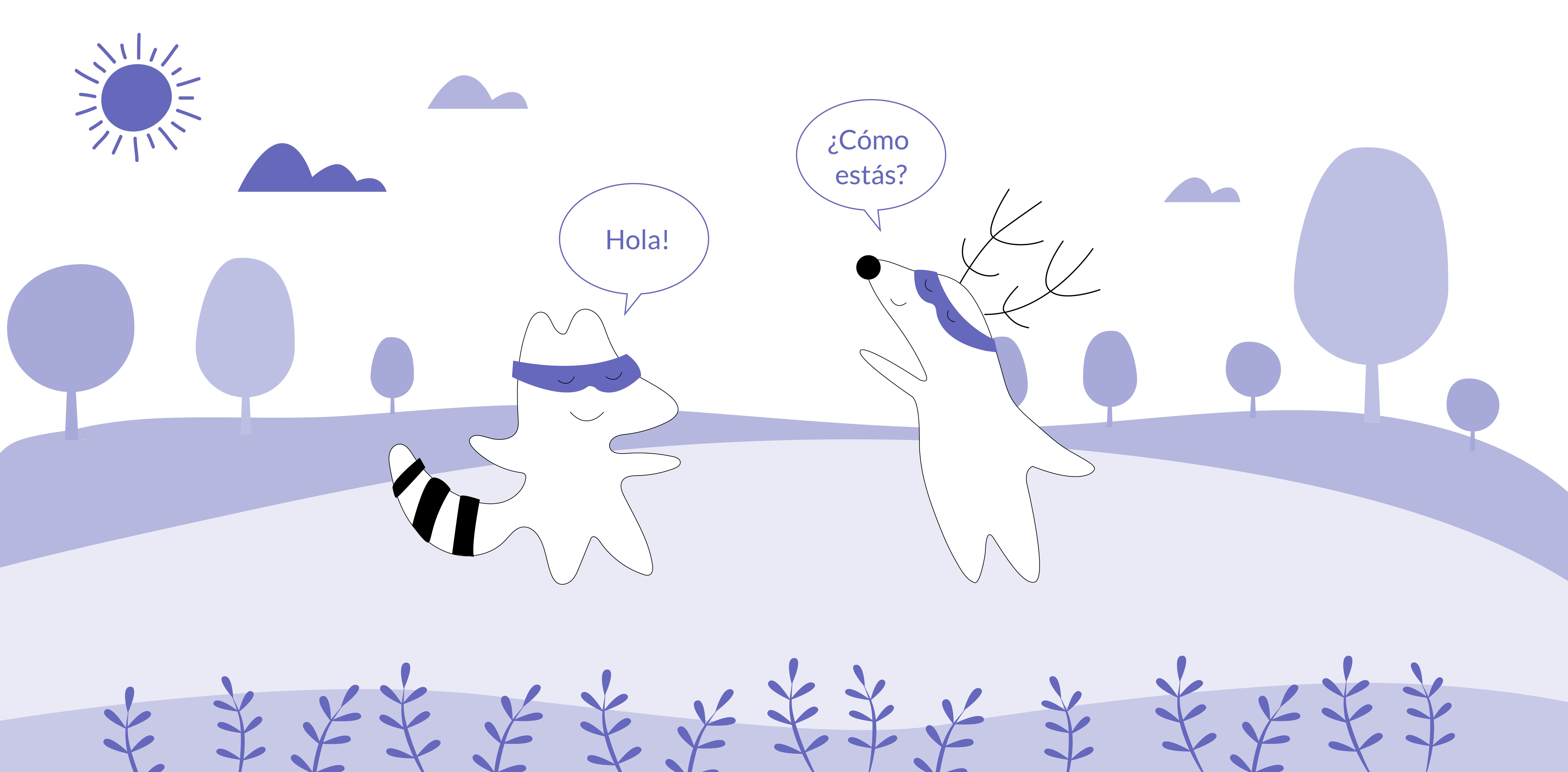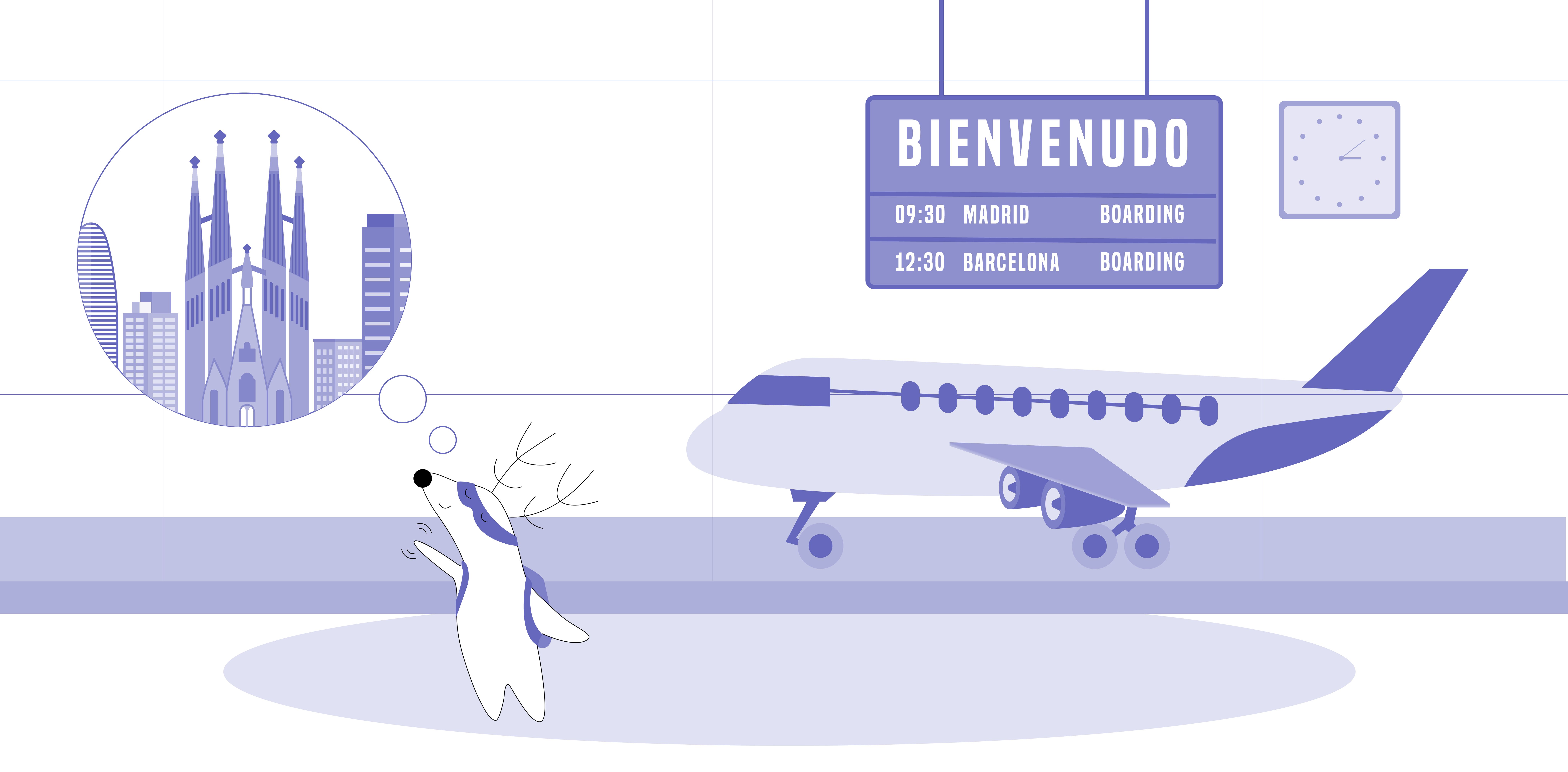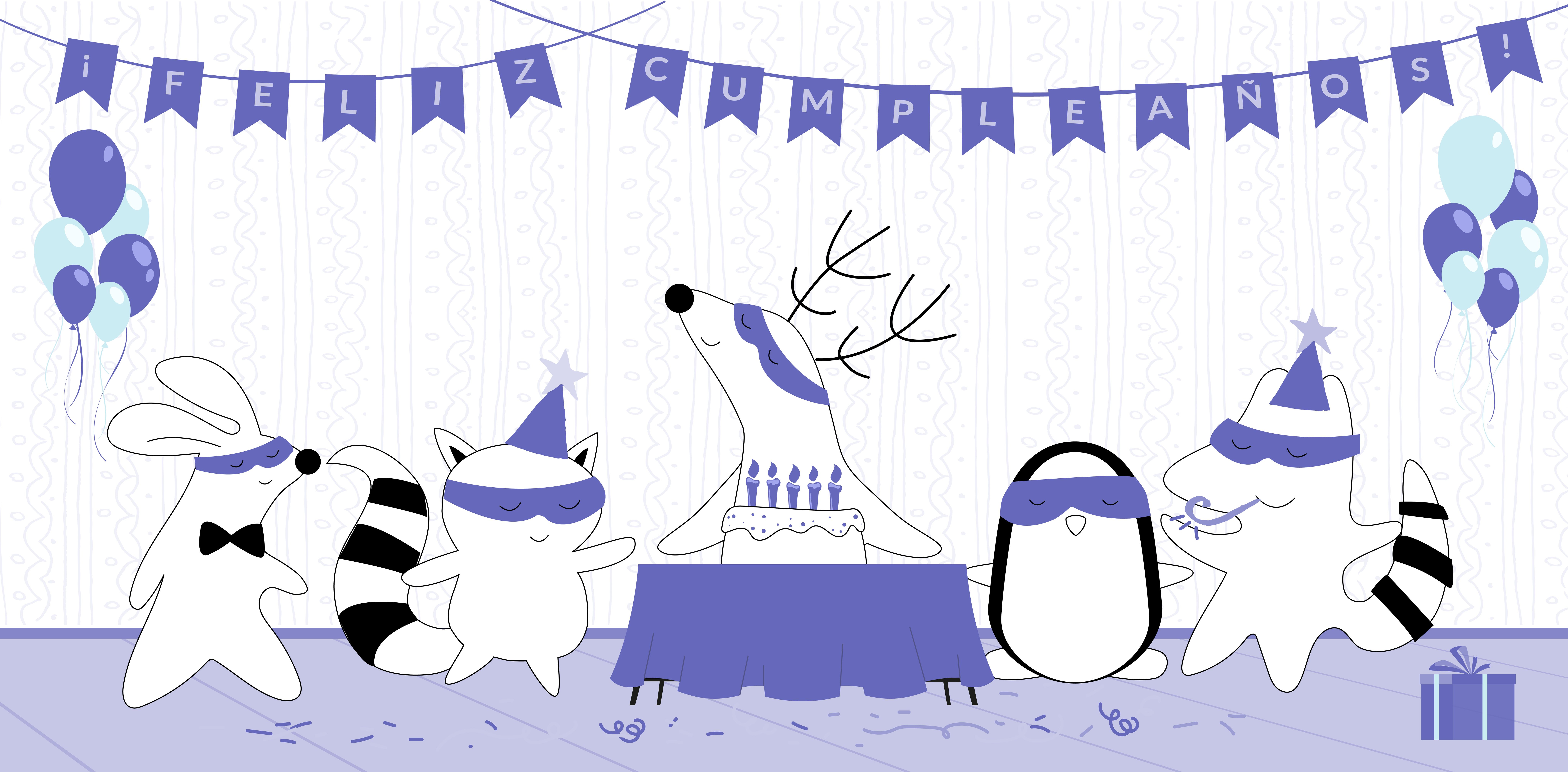
Birthdays are special occasions that bring joy, laughter, and heartfelt celebrations. They serve as an opportunity to express our love, appreciation, and well wishes for the person marking another year of life. Whether you're attending a birthday party, sending a card, or simply wanting to convey your warm regards, learning how to say "Happy Birthday" in Spanish adds a personal touch to the festivities.
In this article, we will delve into the Spanish language, one of the most widely spoken languages in the world, and explore various ways to say “Happy Birthday” to your friends and express your wishes with authentic phrases.
So, get ready to immerse yourself in the vibrant and melodic language as we embark on a journey to wish your loved ones a joyous "Feliz Cumpleaños" in Spanish!
Learn Spanish with Langster
What's the Happy Birthday Song in Spanish?
The Happy Birthday song in Spanish is quite short and easy to learn. The melody of the song is usually the same as the English version of the Happy Birthday song. However, slight variations in the melody and additional verses may take place depending on the region or personal preference.
Here are the lyrics in Spanish:
Spanish
English
Cumpleaños feliz, te deseamos a ti, que los cumplas (nombre), que los cumplas feliz.
Happy birthday we wish to you, happy birthday to you.
After the birthday song, many times people sing the "feliz en tu día." These are the lyrics of the song:
Spanish
English
Feliz, feliz en tu día, amigo que dios te bendiga, que reine la paz en tu día y que cumplas muchos más
Happy, happy day, my friend, may god bless you, may peace reign on your day and may you have many more.
Different Ways to Say Happy Birthday in Spanish
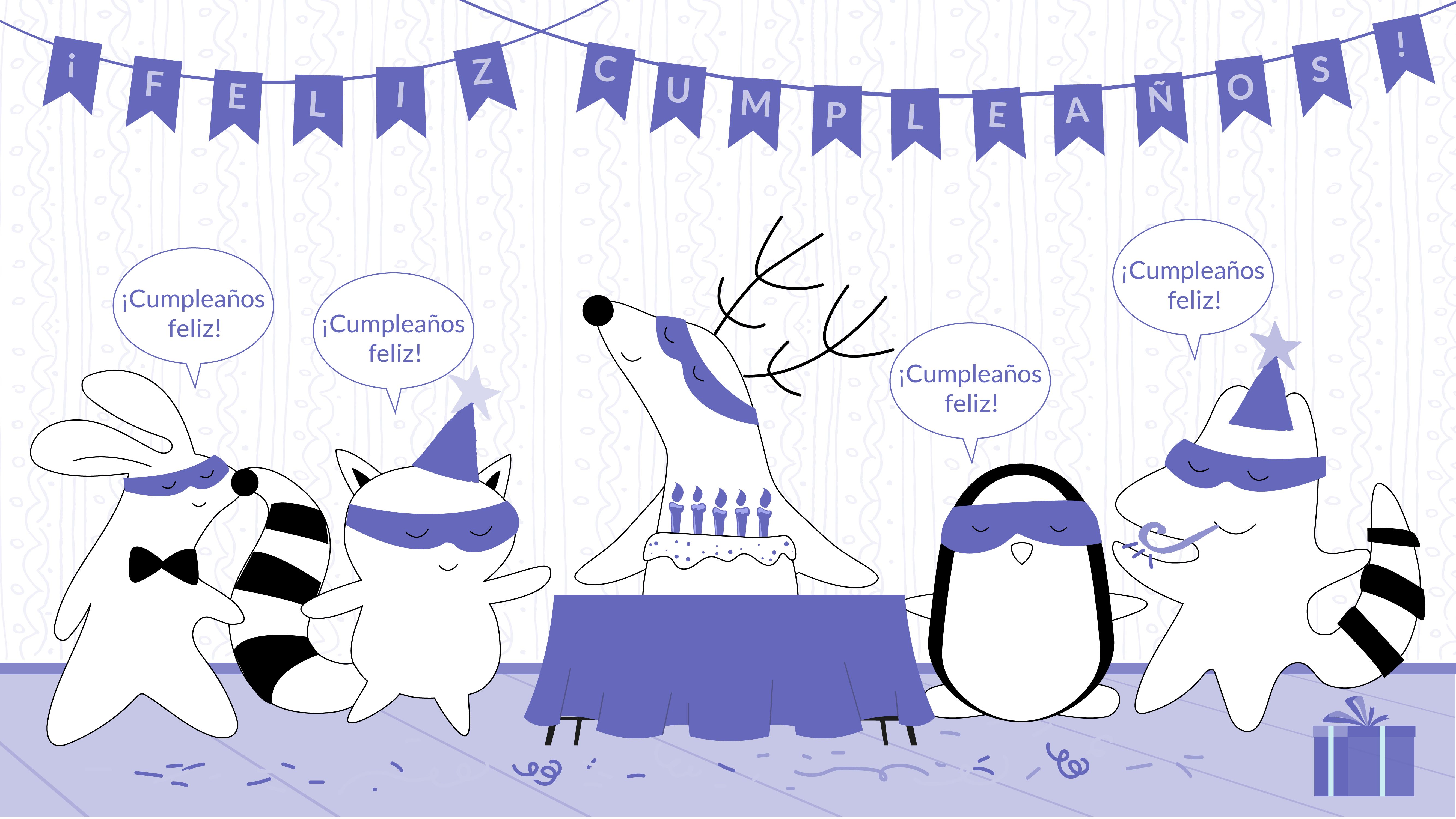
Other phrases commonly used to celebrate a birthday in Spanish include:
¡Que tengas un buen día!
This is a common expression used to wish someone a good day. It's a general and friendly way to express well-wishing for the day ahead.
Spanish
English
¡Que tengas un buen día!
Have a good day!
¡Que cumplas muchos más!
This phrase is used to wish someone a happy birthday and express a hope for them to have many more birthdays in the future.
Spanish
English
¡Que cumplas muchos más!
May you have many more birthdays!
¡Espero que pases un hermoso día!
This is another way of expressing well-wishing for someone to have a beautiful or wonderful day. It's a positive and friendly sentiment.
Spanish
English
¡Espero que pases un hermoso día!
I hope you have a beautiful day!
Feliz cumple
This is a shortened version of "Feliz cumpleaños" and is an informal way to wish someone a happy birthday.
Spanish
English
Feliz cumple.
Happy birthday.
A ti, feliz cumpleaños
This is a more personalized way of wishing someone a happy birthday, specifically addressing the person celebrating their birthday. You can also use other vocatives, like “birthday girl” or “birthday boy”.
Spanish
English
A ti, feliz cumpleaños.
To you, happy birthday.
Que tengas un maravilloso cumpleaños
Similar to the second phrase, this expression is a wish for the person to have a wonderful birthday, emphasizing the desire for the day to be special.
Spanish
English
Que tengas un maravilloso cumpleaños
Have a wonderful birthday.
Feliz cumpleaños atrasado
This phrase is used when you're wishing someone a happy birthday, but you're acknowledging that your greeting is late. "Atrasado" means "late" or "belated" in this context.
Spanish
English
Feliz cumpleaños atrasado.
Happy belated birthday.
And, in many countries where people use "usted," as in Colombia, people would say:
Spanish
English
Que los cumpla feliz.
Happy birthday to you.
Friends and relatives may also give gifts such as cards, flowers, chocolates, or balloons.
How Are Birthday Parties Celebrated in Latin America?
In addition to well-wishes, birthday festivities in Spanish-speaking cultures, such as Mexican birthday parties, may involve traditional rituals such as cutting cakes or lighting candles. Cakes are usually decorated while candles may be arranged to form the birthday person's age.
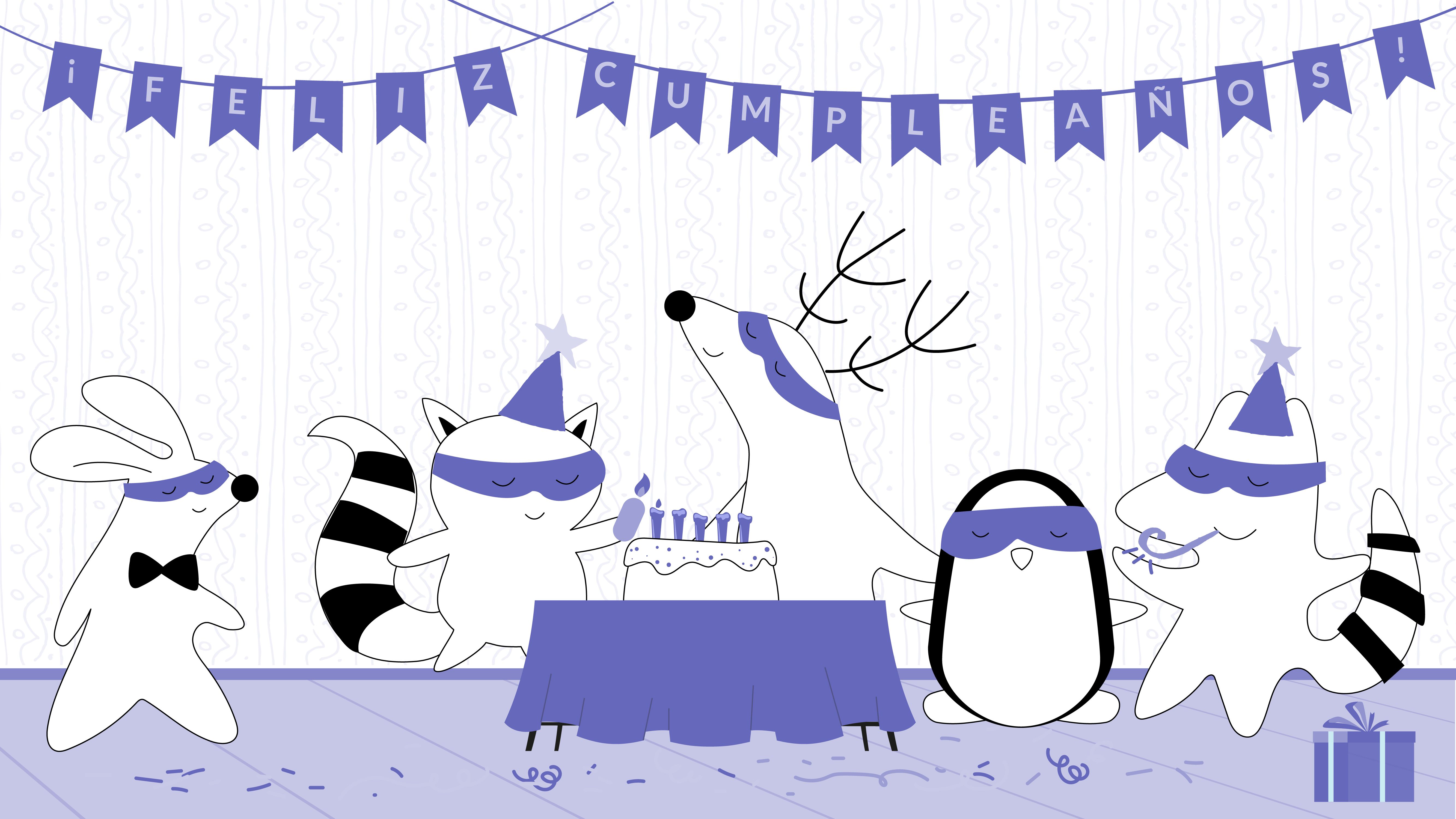
For example, the song Estas Son las Mañanitas is a traditional Mexican birthday song, sung on the morning of a person's birthday. The song is often performed by a group of people gathered to celebrate the birthday and is accompanied by clapping and sometimes musical instruments.
It is a joyful and festive song that is used to wish someone a happy birthday!
Where Are Birthdays Celebrated
There are many places where people can celebrate their birthdays:
- Homes: The most common and traditional place to celebrate birthdays in Spanish-speaking countries is at home. Family and friends gather to celebrate the birthday person, decorate the house, and enjoy food, cake, and festivities together.
- Restaurants: Many people also choose to celebrate their birthdays in restaurants, especially for larger gatherings or special occasions, as they offer a convenient and festive setting and often provide special menus or services for these celebrations.
- Event venues: Party halls, community centers, or rented spaces are also very common. These venues provide ample space for larger parties and may offer additional amenities such as catering services, music, and decorations.
- Parks and outdoor spaces: In seasons with pleasant weather, birthdays are sometimes celebrated in parks or outdoor spaces. Families and friends gather for picnics, barbecues, or outdoor games to celebrate the special day in a natural and relaxed setting and sing "que los cumplas feliz."
Important Rituals
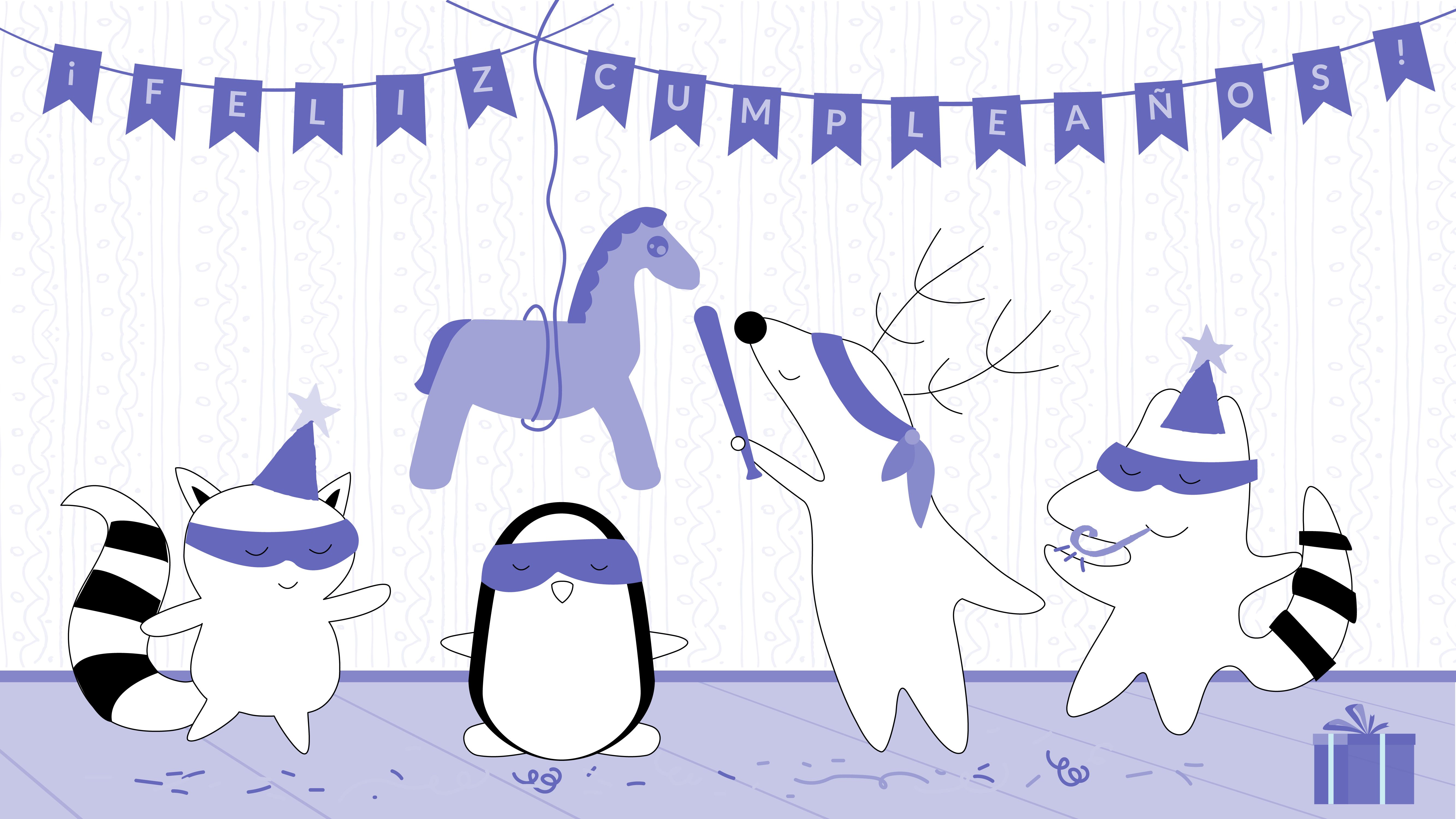
In Latin America, cutting the cake and blowing out the candles are significant and cherished rituals during birthday celebrations. This moment usually takes place after singing the "cumpleaños feliz" song.
The birthday person makes a wish, blows out the candles, and then proceeds to cut and distribute slices of cake to the guests. It is customary for everyone to congratulate the birthday person and offer well wishes.
Additionally, traditional games add an extra layer of fun and excitement to birthday celebrations in several countries in Latin America. One popular game is the piñata-smashing activity. A piñata, often designed in various colorful shapes, is filled with candies, small toys, and other surprises.
Then, it is hung from a tree branch or a rope, and blindfolded participants take turns trying to break it open with a stick or bat while others cheer them on. Once the piñata bursts open, everyone rushes to gather the treats that spill out. It's so much fun!
Children's Birthdays
Face-painting, balloon sculpting, and puppet shows are typically used in children's parties. Often, these events have a theme related to the birthday person's interests or favorite cartoon character.
No matter what customs are followed at a birthday party, they all involve wishing someone a happy day and sharing special moments with loved ones. Ultimately, the best way to say "Happy Birthday" in Spanish is with a heartfelt hug and wishing someone peace and joy on their special day.
Common Jokes about Happy Birthday in Spanish
Humor is also present when wishing loved ones a happy birthday. Just take into account that these phrases are meant to be lighthearted and funny, so you should consider your friend's sense of humor to ensure that the joke is well received.
Spanish
English
¡Que cumplas muchos años y que los que te queden por cumplir sean en países lejanos!
May you have many more years, and may the ones you have left to fulfill be in distant countries!
¡Feliz cumpleaños! Espero que este año no te caigas de la tarta, ¡que siempre estés en la cima!
Happy birthday! I hope this year you don't fall off the cake, may you always be on top!
Que comas tanta tarta que acabes soplando velas de chocolate en la báscula.
May you eat so much cake that you end up blowing chocolate candles on the scale.
Feliz cumpleaños, que recibas muchos regalos y todos sean de mi talla.
Happy birthday, may you receive many gifts, and may they all be in my size.
En tu cumpleaños, recuerda que la edad es solo un número... un número cada vez más grande, ¡pero solo un número!
On your birthday, remember that age is just a number... a number that keeps getting bigger, but still just a number!
Other Useful Phrases for Birthdays
Here are some of the many other useful phrases to talk about birthdays in Spanish:
Spanish
English
¿Cuándo es tu cumpleaños?
When is your birthday?
Te deseo un año lleno de alegría y éxitos.
I wish you a year full of joy and success.
Que todos tus deseos se hagan realidad.
May all your wishes come true.
Que la vida te colme de bendiciones.
May life shower you with blessings.
Disfruta al máximo tu día.
Enjoy your day to the fullest.
Te envío mis mejores deseos en tu cumpleaños.
I send you my best wishes on your birthday.
Que cada nuevo año te traiga más felicidad.
May each new year bring you more happiness.
¡Brindo por ti y por tu felicidad!
I toast to you and your happiness!
The Bottom Line
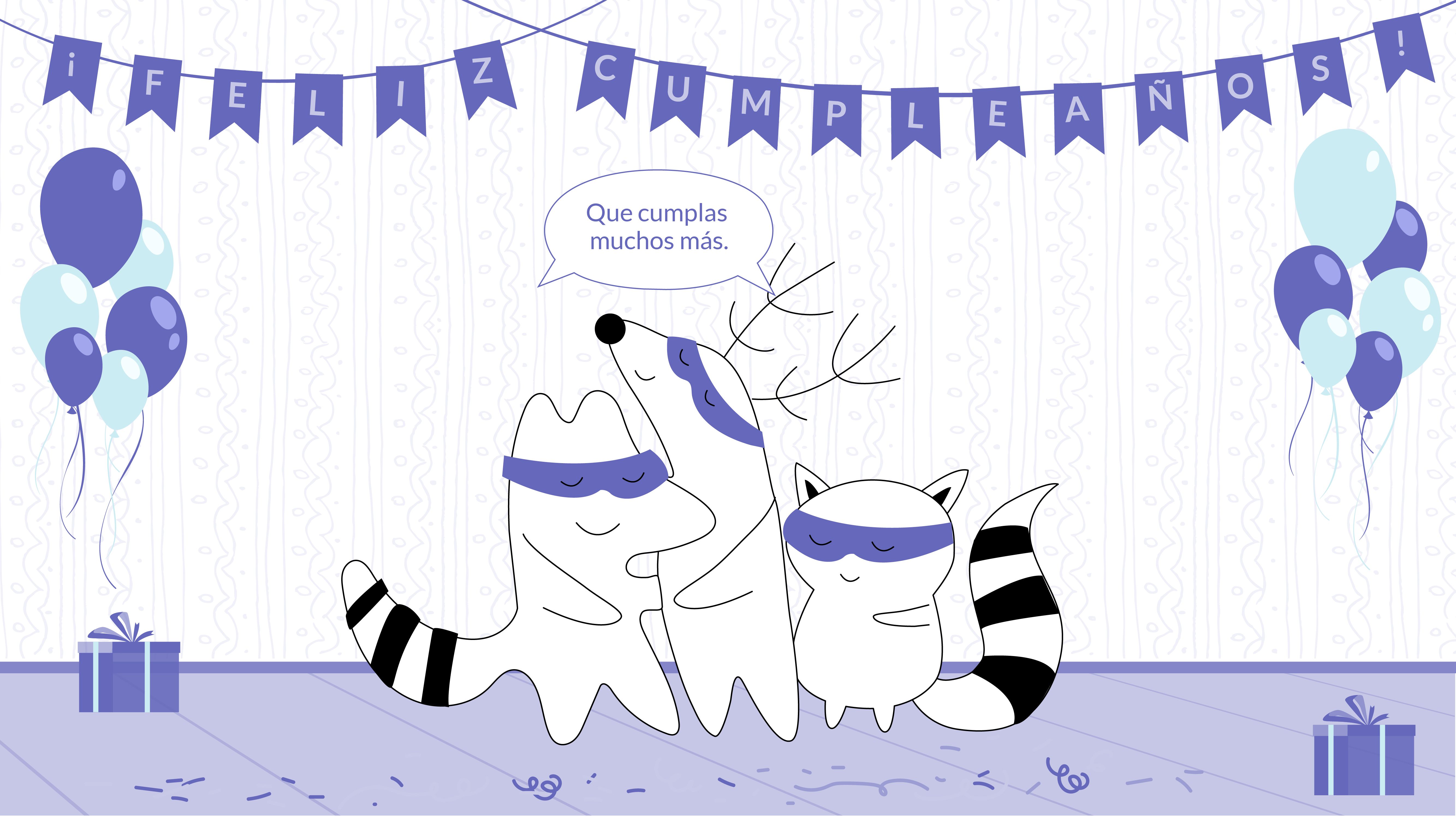
Birthdays are special cultural occasions no matter what language they’re celebrated in or what traditions are followed. So, if you know any native Spanish speakers, don’t miss this opportunity to show your appreciation for the language by wishing them a happy birthday in Spanish: ¡Feliz cumpleaños!
And, if you wish to expand your vocabulary even more and learn how to congratulate your friends, you can use Langster. Now, you have the web version at your disposal in addition to a fantastic app where you can learn Spanish using the most engaging stories.
Learn Spanish with Langster







